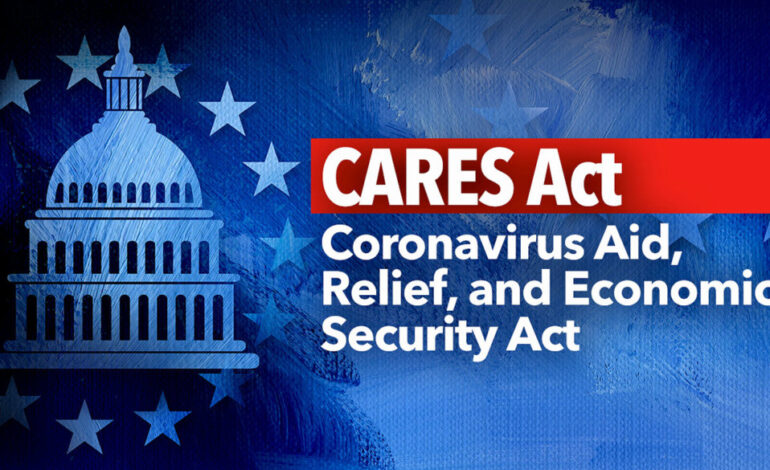Almost all countries around the world are forced to adopt dramatic measures to slow down the COVID 19 pandemic. With social distancing in place by public health departments, we are all part of the fight to combat this pandemic. These measures have severely impacted the global economy in various ways. Small businesses will suffer the brunt of it more than any other business sector. According to a new report from McKinsey & Company, if social distancing and lockdown measures fail to prevent a resurgence of the pandemic, the world will experience “muted” economic recovery.
In the United States, most people are worried about their health right now. Their main concern is protection from the novel coronavirus strain. Unfortunately, another paramount concern for small business owners is their ability to survive economically. They do not have the luxury of collecting unemployment while waiting to be called back to work. They are looking at the looming specter of reopening their businesses, with significantly fewer customers walking through the door. Consider the immense effort of opening a business and the accompanying sense of pride to run your own business. Suddenly, by no fault of your own, a virus threatens your livelihood.
Recognizing the systemic threat posed to small businesses, the federal government intervened. An obscure change to the bankruptcy laws in February of this year offers crucial protection for small businesses. On August 23, 2019, President Trump signed into law the Small Business Reorganization Act amending Chapter 11 of the bankruptcy code. The amendment became effective in February of this year and protects small businesses with less than $2,725,625 of debt. And on March 27, President Trump signed into law the Coronavirus Aid, Relief and Economic Security Act (CARES Act), increasing the debt limit to $7.5 million.
The CARES Act also allocated $376 billion in relief for American workers and small businesses. Under the CARES Act, the federal government allocated funding for loan programs and other various forms of economic relief for impacted businesses.

Michael Jaafar, Esq.
However, for many business owners stimulus relief remains elusive, as the deluge of applicants, including publicly traded companies (no kidding), exhausted allocated funds. However, even if you are one of the lucky few to receive stimulus funds, these funds do not guarantee the long-term viability of your business. While you may be able to retain or rehire some of your employees, and possibly spend some of the money on advertising, these are short-term solutions. Stimulus funding does not guarantee that customers walk through your front door once the economy reopens.
Receiving stimulus aid allows you to get back to business, but does not lower your operating costs or debts. This is where a restructuring under Chapter 11 can help. An extended shutdown exacerbates outstanding debt, as interest and principal may increase and expenses accrue. Although your businesses may reopen, your financial outlook may be bleak. Many small businesses will be greeted with demand letters from creditors, landlords demanding past due rent and a slew of financial challenges.
The legislative amendment to Chapter 11 of the Bankruptcy Code adds a new subchapter, the Small Business Reorganization Act (SBRA), commonly known as Subchapter V of Chapter 11 of the Bankruptcy Code. This sea change amendment now offers significant protections to small business owners and entrepreneurs similar to the protections historically available under Chapter 7 of the Bankruptcy Code. As you may already know, unlike a Chapter 7 debtor, a Chapter 11 debtor retains control over its operations and restructures business debts through a court-approved plan. The SBRA, along with the CARES Act, significantly enhances the Chapter 11 protection for small businesses during the coronavirus outbreak. Businesses can use these expanded protections for many things, including to reduce or eliminate debt while retaining most or all their business assets and to retain ownership of their businesses in the process.
As a career bankruptcy attorney, I’ve fielded dozens of calls from affected business owners during the past few weeks. Many of them face the same threats — either a landlord demanding rent while the business is completely shut down or revenues have fallen and the business is now forced to choose which creditors to pay. Business owners do not have the luxury of merely asking, “should I default?” Rather, the question is often, “on what should I default first?”
Historically, entrepreneurs and companies have successfully sought the protection of the Bankruptcy Code to survive and protect their businesses, including the president’s companies (numerous times). But the process has always been very expensive and unattainable to small businesses. Nonetheless, the SBRA, combined with the CARES Act, has finally made that same power available and affordable to small business owners at a fraction of the price with significantly less difficulty. Chapter 11 is optimal for businesses or entrepreneurs with less than $7.5 million in debt. However, the time to act is limited. Although Section 1113 of the CARES Act increases the noncontingent liquidated debt limit from $2.7 million to $7.5 million, this change applies only to cases filed on or after the date the CARES Act is enacted, and sunsets one year after the CARES Act is enacted. After that, the debt limit reverts to the $2.7 million, the pre-CARES Act limit.
If you are a small business owner who is struggling because of the outbreak, you are not alone and you have options. Please consider what makes sense for your business and consult a knowledgeable professional. There is hope and a sensible process for you.
- By Michael Jaafar, Esq.
— Michael Jaafar is the owner of Fairmax Law™, one of the largest bankruptcy and insolvency firms in the state of Michigan. The firm headquarters are located in the city of Dearborn with other offices in Cleveland, Ohio, Flint, Michigan and Warren, Michigan.






Leave a Reply